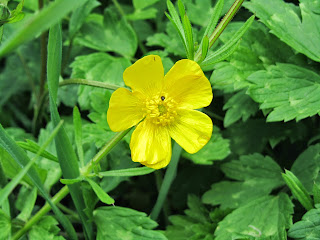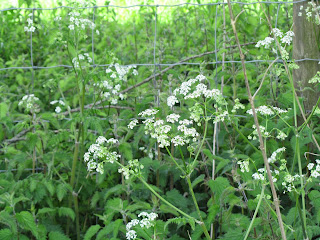I want to demonstrate that a landscape need not have extraordinary features to be beautiful; the most commonplace of plants can lighten up a dreary day. The sight of a lone kestrel soaring above you while walking through an agricultural field is just as valid as an experience of nature as viewing a rare orchid.
A single buttercup flowering in a sea of greenery.
Patches of escaped oilseed rape plants provide splashes of colour in unexpected corners.
Cow parsley (Anthriscus sylvestris) along the fence line attracts many insects. This plant has become much commoner in recent years especially along road verges, and can be accused of smothering the smaller and more delicate plants, but in its place it is still attractive and quintessentially part of the English landscape.
A pretty clump of red campion (Silene dioica) makes a contrast from the predominantly white flowers under the trees.
And now the storm clouds are gathering. Time to go home.


























